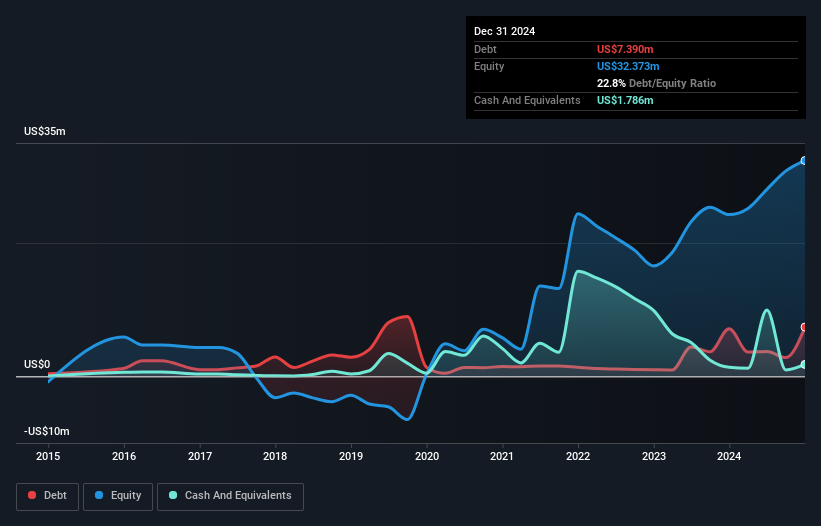Please use a PC Browser to access Register-Tadawul
Is Sadot Group (NASDAQ:SDOT) A Risky Investment?
Sadot Group Inc. - Common Stock SDOT | 2.68 | -8.22% |
Howard Marks put it nicely when he said that, rather than worrying about share price volatility, 'The possibility of permanent loss is the risk I worry about... and every practical investor I know worries about.' When we think about how risky a company is, we always like to look at its use of debt, since debt overload can lead to ruin. We can see that Sadot Group Inc. (NASDAQ:SDOT) does use debt in its business. But the more important question is: how much risk is that debt creating?
Why Does Debt Bring Risk?
Debt assists a business until the business has trouble paying it off, either with new capital or with free cash flow. If things get really bad, the lenders can take control of the business. While that is not too common, we often do see indebted companies permanently diluting shareholders because lenders force them to raise capital at a distressed price. By replacing dilution, though, debt can be an extremely good tool for businesses that need capital to invest in growth at high rates of return. The first thing to do when considering how much debt a business uses is to look at its cash and debt together.
What Is Sadot Group's Net Debt?
The chart below, which you can click on for greater detail, shows that Sadot Group had US$7.39m in debt in December 2024; about the same as the year before. However, because it has a cash reserve of US$1.79m, its net debt is less, at about US$5.60m.

A Look At Sadot Group's Liabilities
We can see from the most recent balance sheet that Sadot Group had liabilities of US$132.2m falling due within a year, and liabilities of US$111.0k due beyond that. Offsetting these obligations, it had cash of US$1.79m as well as receivables valued at US$25.1m due within 12 months. So its liabilities outweigh the sum of its cash and (near-term) receivables by US$105.4m.
This deficit casts a shadow over the US$13.4m company, like a colossus towering over mere mortals. So we'd watch its balance sheet closely, without a doubt. At the end of the day, Sadot Group would probably need a major re-capitalization if its creditors were to demand repayment. The balance sheet is clearly the area to focus on when you are analysing debt. But ultimately the future profitability of the business will decide if Sadot Group can strengthen its balance sheet over time. So if you want to see what the professionals think, you might find this free report on analyst profit forecasts to be interesting.
In the last year Sadot Group had a loss before interest and tax, and actually shrunk its revenue by 2.3%, to US$701m. We would much prefer see growth.
Caveat Emptor
Over the last twelve months Sadot Group produced an earnings before interest and tax (EBIT) loss. Its EBIT loss was a whopping US$11m. When you combine this with the very significant balance sheet liabilities mentioned above, we are so wary of it that we are basically at a loss for the right words. Sure, the company might have a nice story about how they are going on to a brighter future. But the reality is that it is low on liquid assets relative to liabilities, and it burned through US$3.3m in the last year. So we consider this a high risk stock, and we're worried its share price could sink faster than than a dingy with a great white shark attacking it. There's no doubt that we learn most about debt from the balance sheet. But ultimately, every company can contain risks that exist outside of the balance sheet. For example Sadot Group has 3 warning signs (and 2 which make us uncomfortable) we think you should know about.
When all is said and done, sometimes its easier to focus on companies that don't even need debt. Readers can access a list of growth stocks with zero net debt 100% free, right now.
This article by Simply Wall St is general in nature. We provide commentary based on historical data and analyst forecasts only using an unbiased methodology and our articles are not intended to be financial advice. It does not constitute a recommendation to buy or sell any stock, and does not take account of your objectives, or your financial situation. We aim to bring you long-term focused analysis driven by fundamental data. Note that our analysis may not factor in the latest price-sensitive company announcements or qualitative material. Simply Wall St has no position in any stocks mentioned.



